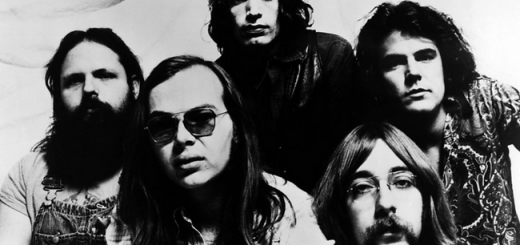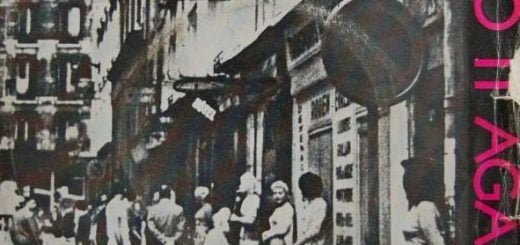Kid Charlemagne by Steely Dan Lyrics Meaning – Unraveling the Ballad of a Counterculture Icon
Lyrics
Those San Francisco nights
You were the best in town
Just by chance you crossed the diamond with the pearl
You turned it on the world
That’s when you turned the world around
(Did you feel like Jesus?)
Did you realize
That you were a champion in their eyes?
On the hill the stuff was laced with kerosene
But yours was kitchen-clean
Everyone stopped to stare at your technicolor motor home
Every A-Frame had your number on the wall
You must have had it all
You’d go to L.A. on a dare and you’d go it alone
(Could you live forever?)
Could you see the day?
Could you feel your whole world fall apart and fade away?
Get along, get along, Kid Charlemagne
Get along, Kid Charlemagne
Now your patrons have all left you in the red
Your low-rent friends are dead
This life can be very strange
All those Day-Glo freaks who used to paint the face
They’ve joined the human race
Some things will never change
(Son, you were mistaken)
You are obsolete
Look at all the white men on the street
Get along, get along, Kid Charlemagne
Get along, Kid Charlemagne
Clean this mess up else we’ll all end up in jail
Those test tubes and the scale
Just get it all out of here
Is there gas in the car?
Yes, there’s gas in the car
I think the people down the hall know who you are
(Careful what you carry)
‘Cause the man is wise
You are still an outlaw in their eyes
Get along (get along), get along, Kid Charlemagne (get along)
Get along, Kid Charlemagne
At the nexus of jazz-infused rock and sophisticated pop lies Steely Dan’s ‘Kid Charlemagne,’ a track that stands as a powerful testament to the duo’s genius in storytelling and musicianship. Underneath its groove-laden surface, ‘Kid Charlemagne’ is a narrative deeply enmeshed in the tapestry of the 1970s counterculture—a cerebral voyage into the life of a figure who once reigned supreme in the underground.
Steely Dan, known for their cryptic lyricism, sets the scene in a post-hippie San Francisco, the lyrics weaving an evocative depiction of a man whose name is whispered with reverence and caution, a mythic architect of altered states now facing the decline of his empire.
The Rise and Fall of the Counterculture King
Kid Charlemagne, as the protagonist of the song, propels us through a rags-to-riches-to-rags story that encapsulates the volatile nature of the 1970s drug scene. Through glimpses of technicolor motor homes and clandestine operations by candlelight, the song casts a light on the transient glory of a drug kingpin—an allusion to the real-life figure Owsley Stanley, famed LSD chemist and sound engineer for the Grateful Dead.
As the ‘best in town,’ the Kid’s euphoric ascent is marked by social adulation, a testament to his early successes. Yet, Steely Dan doesn’t shy away from the precarious foundation of such a rise, subtly foreshadowing an inevitable fall from grace.
The Existential Questioning of a Fallen Messiah
Interwoven with the tale of power and decline are the haunting reflections of the protagonist, questioning his own transcendence, or lack thereof. The repeated line ‘Did you feel like Jesus?’ isn’t merely rhetorical—it forces the Kid, and the listener, to confront the illusion of grandeur that comes with being seen as a ‘champion’ by adoring fans.
Bringing religious iconography into play, Steely Dan juxtaposes the Kid’s perceived messianic status within the drug culture with the sobering reality of his mortality and impending obsolescence. This inquiry lends the song a spiritual and moral depth, exploring the duality of idolatry and human fallibility.
Cruel Realities: From Day-Glo to Dismal Gray
The colorful veneer of the psychedelic era fades as ‘all those Day-Glo freaks who used to paint the face’ assimilate into the ‘human race.’ This poignant lyric marks the transition from the flamboyant peak of counter-culture expression to a dreary, normalized existence, signaling a broader cultural shift away from the 1960s idealism.
Kid Charlemagne’s ascent as the alchemist of his time contrasts with the sobering descent into irrelevance. The ‘white men on the street’ symbolize the mainstream society that has now cast him aside, rendering the once-revered figure a relic of a bygone era.
Memorable Lines That Echo Through Decades
Within the song’s rich tapestry, a handful of lines stand sharply etched in the collective consciousness. ‘Is there gas in the car? Yes, there’s gas in the car’ captures a moment of tense pragmatism amidst chaos, while the warning, ‘Careful what you carry, ’cause the man is wise’ echoes the paranoia and surveillance of the time.
Even in these brief snapshots, Steely Dan conveys the gritty details of a lifestyle under the radar of authority, the constant balancing act between freedom and captivity, the very essence of the counterculture’s tenuous existence.
The Hidden Meaning Behind Kid Charlemagne’s Odyssey
‘Kid Charlemagne’ is more than the fall of a singular, fictional anti-hero; it’s an allegory for the demise of a cultural moment, the disillusionment of an entire generation yearning for transformation. As the Kid metaphorically—and perhaps, literally—drives off alone into the sunset, the song implicates the listener in a profound dialogue about legacy and meaning.
The narrative works on multiple levels, painting a vivid portrait of personal struggle while simultaneously expressing a universal truth about the fragility of eminence, the impermanence of societal structures, and the vanishing dreams that follow a revolution.








